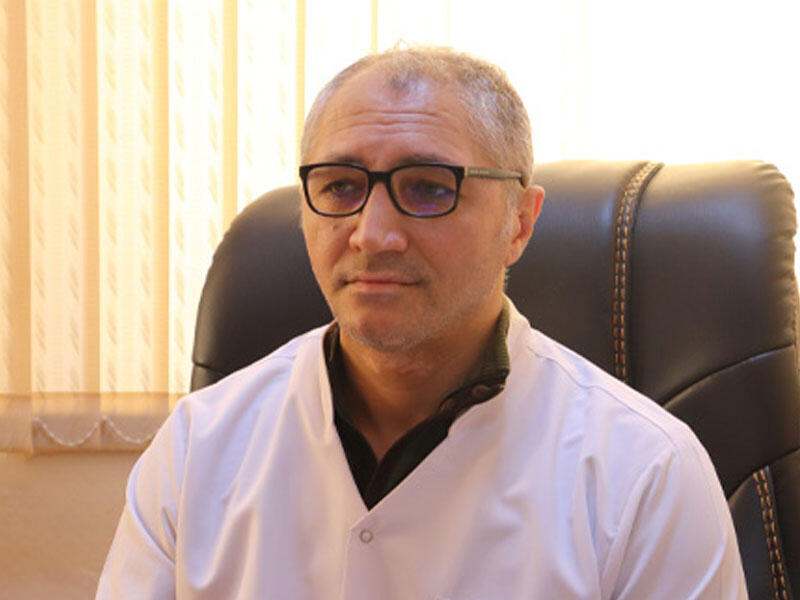
Circumcision in Azerbaijan
“My grandson had inflammation of his genital area, which often caused him pain. At the clinic where he was registered, they said circumcision was necessary. I inquired about where and how this could be done and visited a private clinic near our house. They told me the operation would cost 200 manats [about $117]. Only later did I find out that circumcision is covered under mandatory health insurance. We had it done through insurance, and it was completely free,” says Baku resident Tazakhan Miralamli.
Since the beginning of this year, circumcision in Azerbaijan has been covered by mandatory health insurance. In the past six months, more than 15,000 circumcision surgeries have been performed under this insurance.
- Sanctioned vehicles are being imported into Russia through Georgia, according to a Sky News investigation
- Ruined Ukraine vs. prosperous Georgia: Controversial election banners by the ruling party
- Bakhtiyar Hajiyev no longer plans to take part in his court case
What is circumcision?
Circumcision is the partial or complete removal of the foreskin, which covers and protects the head of the male genital organ. This practice is mainly observed among Jews and Muslims. Azerbaijan is also part of a region where male circumcision is widely practiced.
“In fact, circumcision usually does not have medical significance. Yes, sometimes we have to perform circumcision on children or adults for medical reasons, such as phimosis (narrowing of the foreskin). However, if we look at the international classification of diseases, we see that this operation is referred to as ‘ritual circumcision,‘” says urologist-andrologist Vasif Ismail.
Consequences of circumcision by barbers
Before the recent changes, circumcision for boys in clinics was quite expensive, with prices ranging from 300 to 800 manats [about $176 to $470]. As a result, those who could not afford this turned to individuals known as “barbers,” or circumcision practitioners without proper medical training. This was not always safe. Media in the country frequently reported incidents involving irreversible injuries to children, severe complications, and even deaths following circumcisions performed by barbers.
One such high-profile case occurred in a region of Azerbaijan in February 2020, when a five-year-old boy had his genital organ accidentally severed during a circumcision. The child was urgently taken to Baku for surgery. At that time, surgeon Toghrul Omarov told the media that the child’s condition had been stabilized, but he would require extensive treatment for a full recovery.
A similar incident happened in Ganja in 2011 when 82-year-old barber Shamseddin Tagiyev accidentally severed the genital organ of a four-year-old boy while performing a circumcision at home. The child barely survived.
“Including circumcision in mandatory health insurance will prevent dangerous circumcisions outside clinics”

Circumcision covered by mandatory health insurance will help avoid such risks, believes Dr. Vasif Ismail.
“Except in special cases, circumcision is not medically necessary; it is purely traditional. However, to say that we shouldn’t include circumcision in mandatory health insurance because of this would be a mistake. People will continue to have it done, and it costs money. Therefore, I view the inclusion of circumcision in the mandatory health insurance package positively. Poor families have been forced to have their children circumcised by barbers, leading to negative consequences. This is a very good step to prevent such outcomes. Now people will be able to have their children circumcised by a qualified professional without financial difficulties,” says Vasif Ismail.
A few interesting facts
Despite most doctors seeing no medical significance in circumcision, scientific evidence shows that circumcision protects men from the HIV virus.
“The infection rate among uncircumcised men is eight times higher than that among circumcised men,” asserts Professor Rachel Royce (New England Journal of Medicine, April 10, 1997).
“The chance of circumcised men contracting AIDS is much lower than that of uncircumcised men. This data is based on 28 studies conducted in different countries, 26 of which showed an unequivocal direct link between the risk of contracting AIDS and the presence of the foreskin, which serves as a breeding ground for various pathogens,” reiterates the same point by Professor Alon Ronald from Canada in a study presented at the international symposium on AIDS issues in Japan (The Telegraph, September 8, 1994).


